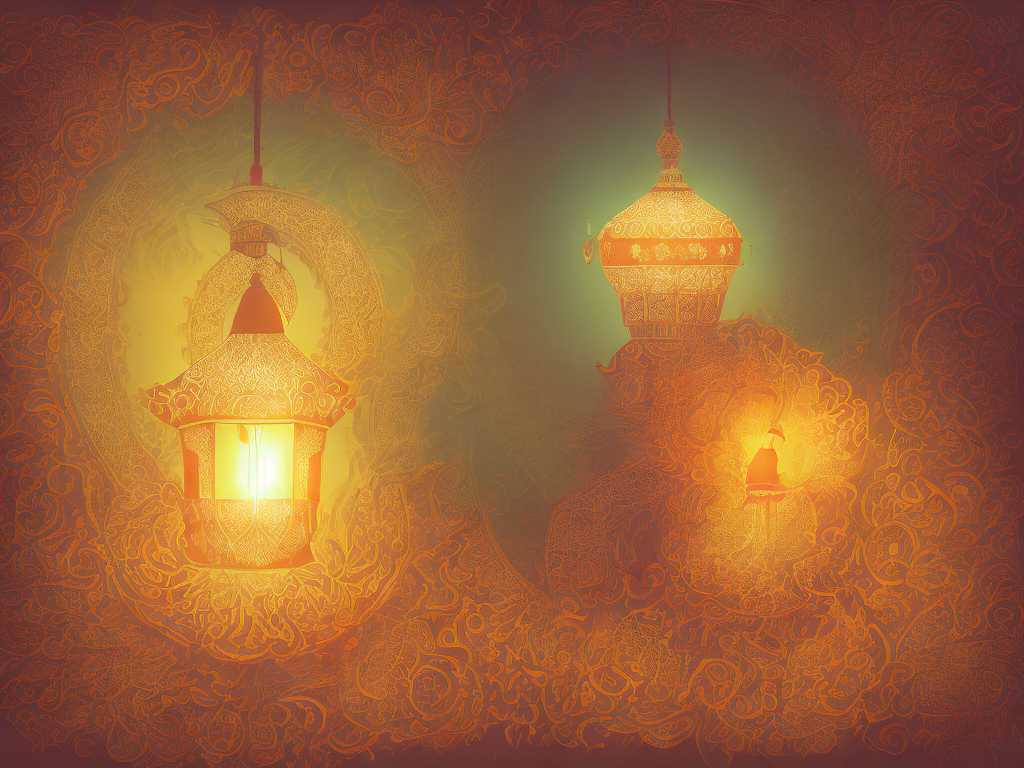
Eid Mubarak is a traditional Muslim greeting exchanged on the occasion of Eid-al-Fitr and Eid-al-Adha. Eid-al-Fitr marks the end of Ramadan, the holy month of fasting, while Eid-al-Adha commemorates Prophet Ibrahim's willingness to sacrifice his son for Allah.
For Muslim communities around the world, Eid is an opportunity to come together with friends and family, exchange gifts, and enjoy traditional food and sweets. It is also an occasion to offer prayers and seek forgiveness from Allah.
Saying Eid Mubarak is a way to wish someone well on this auspicious occasion. The phrase Eid Mubrak means "Blessed Festival" or "Blessed Eid." Here are some tips on how to say Eid Mubarak:
1. Pronunciation
The first step in saying Eid Mubarak is to pronounce it correctly. The word 'Eid' is pronounced as 'eed,' and the word 'Mubarak' is pronounced as 'moo-baa-rak.' The emphasis is on the second syllable of Mubarak. So, the phrase is pronounced as 'eed moo-baa-rak.'
2. Timing
It is customary to say Eid Mubarak after the Eid prayer on the morning of Eid-al-Fitr and Eid-al-Adha. You can also say it during the three days of Eid celebrations that follow. It's best not to say it before the actual day of Eid as it is considered bad luck.
3. Context
When saying Eid Mubarak, it's essential to consider the context. Usually, the greeting is exchanged between Muslims. However, non-Muslims may also offer the greeting as a sign of respect and goodwill. It's best to know the religious background of the person you are greeting to avoid any misunderstanding.
4. Language
Eid Mubarak is traditionally said in Arabic, the language of the Quran. However, Muslims worldwide exchange the greeting in their local language. So, you can say 'Eid Mubarak' in English, French, Urdu, Hindi, Turkish, Indonesian, or any other language that is common in your community.
5. Hand Gesture
A hand gesture accompanies the saying of Eid Mubarak. It is common for people to shake hands or hug each other while saying the greeting. The hand gesture signals goodwill, respect, and joy for the occasion.
Bonus Tip: Other Greetings
Apart from Eid Mubarak, there are other greetings that Muslims exchange on the occasion of Eid. These include:
- 'Eid Saeed' (Arabic) which means "Happy Eid."
- 'Selamat Hari Raya' (Malay) which means "Happy Festival Day."
- 'Bayramınız Kutlu Olsun' (Turkish) which means "May your holiday be blessed."
In Conclusion
Saying Eid Mubarak is a simple but meaningful way of expressing the joy and blessings of Eid. Whether you say it in Arabic, English or any other language, the greeting signals goodwill, respect, and joy for the occasion. So, the next time you celebrate Eid, remember to say Eid Mubarak to family, friends and community members. It's a gesture that connects people and fosters a spirit of togetherness and unity.
 Self-Instruct
Self-Instruct